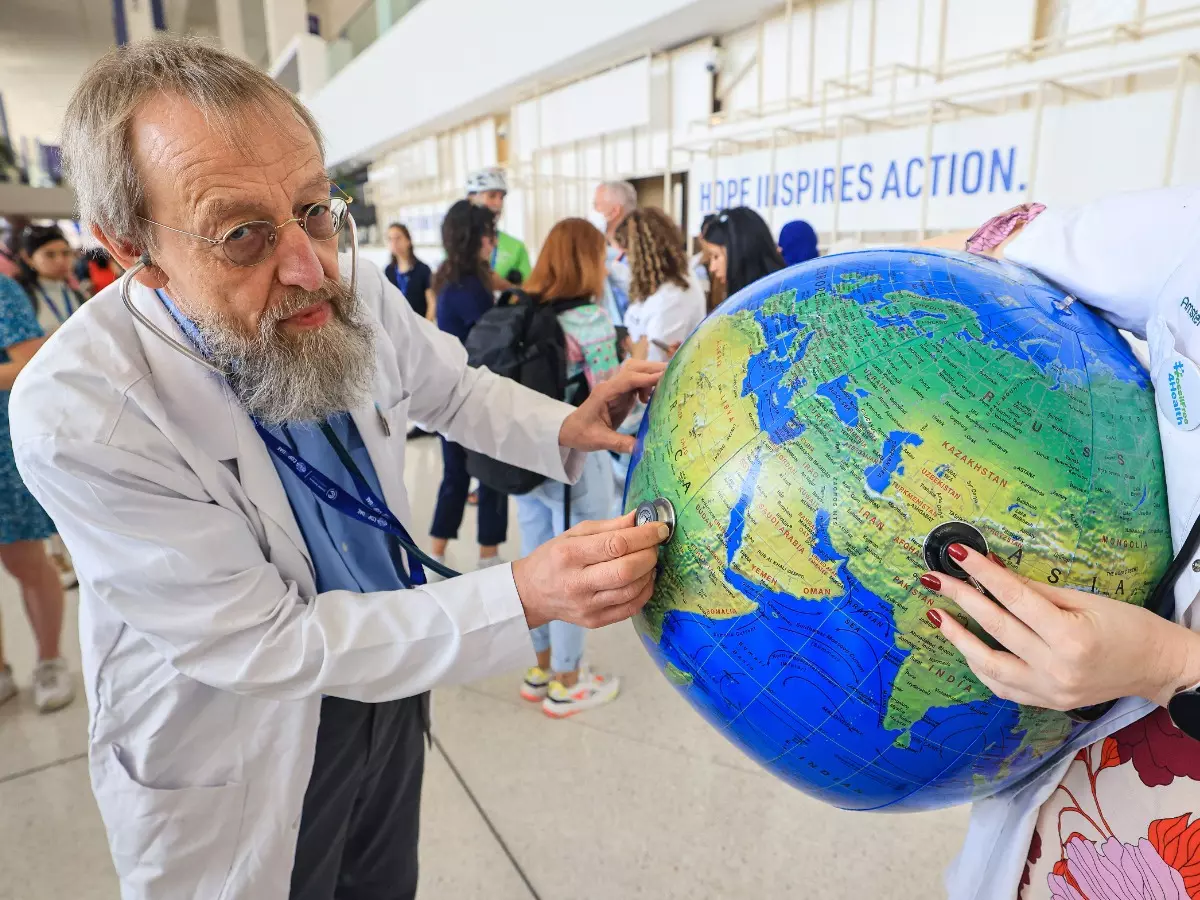COP28: World On Verge Of Breaching 5 Climate Tipping Points, Will Have Catastrophic Consequences, Says Study
A team of 200 scientists has warned that the world could surpass five vital limits crucial for life on Earth due to current warming levels. In the "Global Tipping Points" report released at the International Climate Conference (COP28) in Dubai on Wednesday, the scientists said that out of the identified 26 tipping points, five critical ones, like the cryosphere, are already at risk due to current levels of global warming.

In a clear sign that we might have already lost the fight to stop climate change from becoming irreversible, a team of 200 scientists has warned that the world could surpass five vital limits crucial for life on Earth due to current warming levels.
In the "Global Tipping Points" report released at the International Climate Conference (COP28) in Dubai on Wednesday, the scientists said that out of the identified 26 tipping points, five critical ones, like the cryosphere, are already at risk due to current levels of global warming.
 AP
AP
What are the five major tipping points?
According to the report, the five major tipping points are the Greenland and West Antarctic Ice Sheets, the North Atlantic subpolar Gyre Circulation, warm-water coral reefs and some permafrost regions.
The report said one way to identify imminent tipping points is by looking for the "wobble" or "loss of resistance" in a system.
What happens if tipping points are breached?
Crossing Earth system tipping points would have "catastrophic" impacts on societies, with the potential to "escalate violent conflicts, mass displacement and financial instability", the report warns.
 AFP
AFP
As the planet continues to warm, the likelihood of crossing key thresholds increases. The report also draws on research recently published by McKay, which assesses how many tipping points could be triggered at different levels of global warming.
"These tipping points pose threats of a magnitude that has never been faced before by humanity," said Prof. Tim Lenon, lead author and chair of Climate Change and Earth System Science at the University of Exeter, UK.
Why we need to act now
On a positive note, the report highlights potential tipping points in social progress, such as the growth of renewable energy.
 AP
AP
Dr Steve Smith, at the University of Exeter, noted that just as there are negative tipping points, positive ones can reinforce each other.
"For example, as we cross the tipping point that sees electric vehicles become the dominant form of road transport, battery technology continues to get better and cheaper," he said.
Manjana Milkoreit, governance lead research fellow at the University of Oslo, Norway, said, "The window to prevent the breaching of tipping efforts will close as soon as we pass 1.5 degrees Celsius."
 AFP
AFP
What is the biggest cause?
Negotiators at the climate talks are discussing ways to address fossil fuel burning, the primary cause of global warming.
Milkoreit stressed that even achieving net-zero emissions by mid-century won't prevent surpassing these critical thresholds.
"The world needs a step change in mitigation efforts and a deliberate and active phaseout of fossil fuels," she said.
How fossil fuel emissions have increased
On Tuesday, another report released at COP28 had said that the global fossil-fuel emissions in 2023 are on track to hit a record high of roughly 37 billion tonnes of carbon dioxide í¬ 1.1% more than in 2022.
 AFP
AFP
Climate Action Tracker, a scientific consortium that monitors climate policies, estimated that nations' current pledges to cut emissions, as required by the Paris Agreement, could still allow global temperatures to climb to 2.5 íŃC above pre-industrial levels by 2100.
For more on the news, sports, and current affairs from around the world, please visit Indiatimes News.
